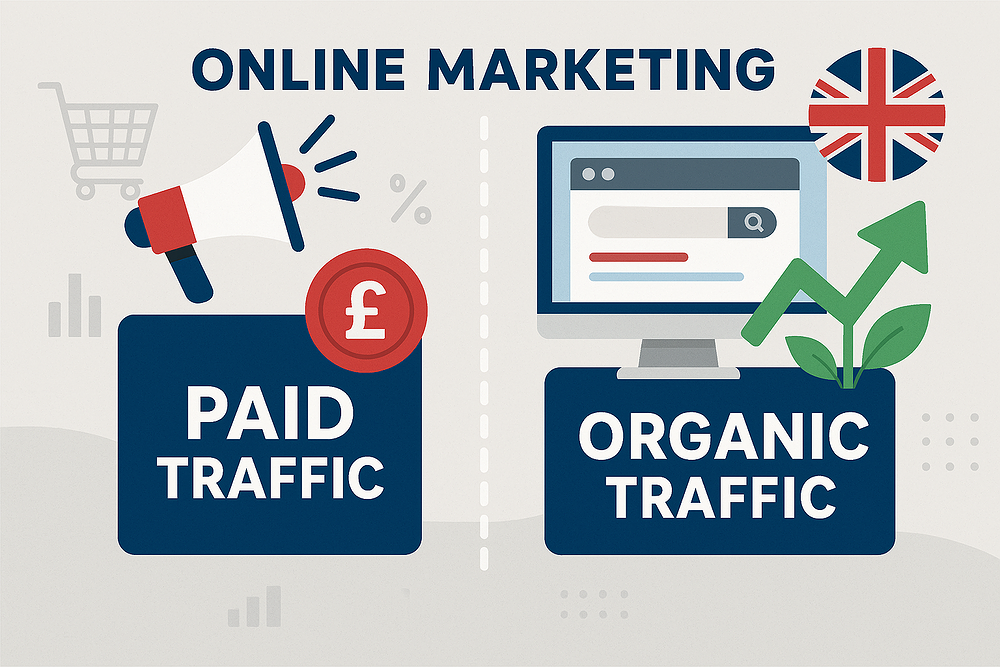Local SEO Tactics for UK Businesses to Dominate Regional Searches

Local SEO Tactics for UK Businesses to Dominate Regional Searches
In today's hyper-connected digital landscape, establishing a strong local presence online has never been more crucial for UK businesses. As we navigate through spring 2025, the local search environment continues to evolve, presenting both challenges and opportunities for businesses looking to capture regional audiences. At AppCoder, we've witnessed firsthand how effective local SEO strategies can transform visibility and drive qualified traffic to businesses of all sizes across the United Kingdom.
With nearly 87% of consumers now researching products and services online before making local purchasing decisions, optimising your business for local search isn't just beneficial—it's essential for survival and growth in today's competitive marketplace.
Why Local SEO Matters More Than Ever in 2025
The past year has seen significant shifts in consumer behaviour, with more people than ever supporting local businesses. Post-pandemic shopping habits have solidified, and the "support local" movement continues to gain momentum across Britain. Recent data from the UK Digital Economy Council shows that searches including "near me" have increased by 32% since early 2024, highlighting the growing importance of local search optimisation.
For small and medium-sized businesses operating in specific regions, local SEO offers a level playing field to compete with larger corporations. By focusing on dominating regional searches, your business can effectively target customers in your service area without the massive marketing budgets of national chains.
Essential Local SEO Tactics for UK Businesses
1. Optimise Your Google Business Profile
Your Google Business Profile (formerly Google My Business) remains the cornerstone of local SEO success. In 2025, Google continues to prioritise these listings in local searches, particularly for mobile users seeking nearby solutions.
To maximise your profile's effectiveness:
- Ensure complete and accurate business information (name, address, phone number)
- Select the most precise business categories
- Add high-quality images of your premises, team, and products/services
- Maintain regular posts about offers, events, and news
- Respond promptly to all customer reviews (positive and negative)
- Update your opening hours, especially around upcoming bank holidays and summer schedules
The latest Google algorithms now place greater emphasis on business profiles with consistent activity and engagement, so regular updates are no longer optional.
2. Build a Localised Content Strategy
Creating content that speaks directly to your local audience is crucial for regional search dominance. Consider developing:
- Location-specific service pages for each area you serve
- Blog posts about local events, news, and developments
- Guides to solving region-specific problems
- Case studies featuring local clients and success stories
- Content that references local landmarks, traditions, or cultural elements
For example, if you're a plumbing business in Manchester, creating content about "How to Prevent Pipe Freezing in Northern England Homes" or "Manchester's Water Quality: What Homeowners Need to Know" will help establish local relevance and authority.
3. Leverage Local Link Building
Backlinks from other respected local websites send powerful signals to search engines about your regional relevance. Consider these local link-building strategies:
- Partner with complementary local businesses for cross-promotion
- Join your local Chamber of Commerce and regional business associations
- Sponsor local events, sports teams, or charity initiatives
- Contribute guest articles to local news sites and community publications
- Get listed in local business directories and industry-specific platforms
The quality of these links matters more than quantity. A single mention from your local council website or respected regional newspaper can significantly boost your local search rankings.
4. Optimise for Voice Search and Mobile
With voice assistants now in millions of UK homes and smartphones, optimising for conversational queries has become essential. The spring 2025 updates to voice search algorithms have placed even greater emphasis on local results.
To capitalise on this trend:
- Incorporate natural language phrases in your content
- Create FAQ pages that answer common local questions
- Ensure your website is fully mobile-responsive with fast loading times
- Use structured data markup to help search engines understand your content
Remember that voice searches tend to be longer and more conversational than typed queries, often beginning with "where," "how," or "near me."
5. Cultivate and Manage Local Reviews
Customer reviews have tremendous influence on both search rankings and consumer decisions. Recent studies show that 93% of UK consumers read online reviews before choosing a local business, and search engines recognise this importance.
To strengthen your review profile:
- Create a systematic approach to requesting reviews from satisfied customers
- Respond thoughtfully to all reviews within 24-48 hours
- Address negative feedback constructively and take the conversation offline when needed
- Share positive reviews across your social media channels
- Monitor review platforms beyond Google (TrustPilot, Yelp, Facebook, industry-specific sites)
The recency and frequency of reviews matter as much as the overall rating, so maintaining a steady stream of fresh feedback is crucial.
Technical Local SEO Considerations
While content and engagement form the foundation of local SEO, technical optimisations remain important:
1. Local Schema Markup
Implementing LocalBusiness schema markup helps search engines understand crucial information about your business. This structured data can improve how your business appears in search results and increase your chances of appearing in rich snippets.
2. Location-Based Keywords
Incorporate location-specific keywords naturally throughout your website. This includes your service areas, nearby towns, counties, and regional terms. However, avoid "keyword stuffing" which can trigger penalties in 2025's sophisticated algorithms.
3. Mobile Page Experience
With Google's continued emphasis on page experience metrics, ensure your local business website excels in mobile usability, loading speed, and interactive elements. The Core Web Vitals introduced years ago remain crucial ranking factors, particularly for local searches.
Measuring Local SEO Success
Effective local SEO requires ongoing measurement and refinement. Key performance indicators to track include:
- Local search rankings for your primary keywords
- Google Business Profile insights (views, actions, direction requests)
- Website traffic from local areas
- Conversion rates from local visitors
- Review volume and sentiment
- Citation accuracy across directories
Tools like Google Analytics, Google Search Console, and specialised local SEO platforms can help monitor these metrics and identify opportunities for improvement.
Looking Ahead: Local SEO Trends for Late 2025
As we move towards summer 2025, several emerging trends are worth watching:
- Hyperlocal targeting: Search engines are increasingly able to deliver results for extremely specific neighbourhoods and micro-regions
- AR integration: Augmented reality features are beginning to appear in local search results, allowing potential customers to visualise products and services
- Sustainability signals: Businesses highlighting eco-friendly practices are gaining preference in certain local searches
- Video content: Local video content is receiving higher prominence in search results
Staying ahead of these trends can give your business a competitive advantage in regional search visibility.
Conclusion
For UK businesses, local SEO represents one of the most cost-effective marketing investments available in 2025. By implementing these strategies consistently, even small businesses can achieve remarkable visibility in their target regions without massive marketing budgets.
At AppCoder, we help businesses across the UK develop and implement effective local SEO strategies tailored to their specific regions and industries. Whether you're serving a single town or multiple counties, dominating regional searches starts with understanding the unique characteristics of your local market and creating a focused optimisation plan.
Remember that local SEO is not a one-time project but an ongoing process that requires attention and refinement. The businesses that commit to consistent local optimisation are the ones that will continue to thrive in their communities throughout 2025 and beyond.
Talk to us about your next project
Our team of experts is ready to help bring your ideas to life with solutions tailored to your business.
Get in Touch

